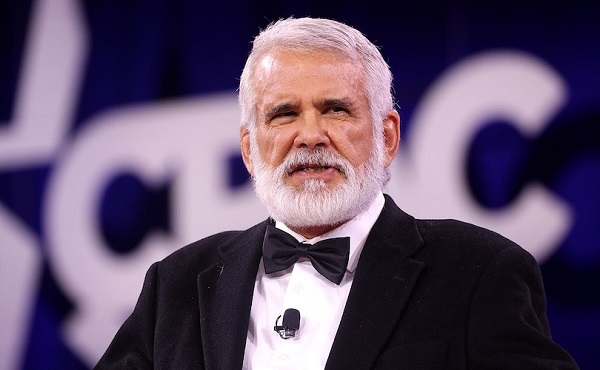International
Elon Musk expresses ‘regret’ over attacks on Trump that ‘went too far’

From LifeSiteNews
It remains to be seen whether the relationship between Elon Musk and President Donald Trump will be mended.
Tech mogul Elon Musk said Wednesday that he regrets “some” of his attacks on President Donald Trump stemming from disagreements with his so-called “Big Beautiful Bill,” though the two men remain far from reconciliation.
Passed last month by the U.S. House of Representatives and now before the Senate for consideration, the One Big Beautiful Bill Act (BBB) aims to enact large portions of Trump’s legislative agenda through the budget reconciliation process, which requires only a simple majority vote in the Senate rather than the typical 60-vote threshold for standalone legislation.
It extends the 2017 Trump tax cuts, institutes various other tax changes proposed by Trump on the campaign trail, and includes several other conservative priorities, including funding for border security efforts, defunding Planned Parenthood, eliminating many “green” energy subsidies, and more.
However, it faces conservative opposition over estimates that it will add a minimum of $2.4 trillion to the federal deficit over the next decade; last week, the bill’s failure to include or be prefaced by codifying the spending cuts of the administration’s Department of Government Efficiency (DOGE) project led to a dramatic falling out between Trump and former DOGE head Musk.
Musk lobbed numerous posts against Trump last week, primarily focused on the fiscal impact of the BBB, the most eyebrow-raising of which was that “@realDonaldTrump is in the Epstein files. That is the real reason they have not been made public,” followed by “Mark this post for the future. The truth will come out.” Trump shot back that Musk had “lost his mind” and suggested he was really upset by the prospect of losing electric vehicle subsidies, although Musk was on the record opposing those subsidies.
The Trump Justice Department’s failure so far to release significant new information about dead pedophile Jeffrey Epstein has been a source of consternation, renewing speculation that such records might implicate Trump himself. The president was one of Epstein’s many high-profile associates, having flown on Epstein’s private jet, but no evidence linking Trump to Epstein’s crimes has ever emerged, and in fact Trump eventually banned him from his Mar-a-Lago club for assaulting an underage girl.
“I was hired to lead Jeffrey Epstein’s defense as his criminal lawyer 9 days before he died. He sought my advice for months before that. I can say authoritatively, unequivocally, and definitively that he had no information to hurt President Trump,” attorney David Schoen said after Musk’s post.
Musk deleted the charge, and on Wednesday posted, “I regret some of my posts about President @realDonaldTrump last week. They went too far.”
I regret some of my posts about President @realDonaldTrump last week. They went too far.
— Elon Musk (@elonmusk) June 11, 2025
While the walk-back has been overwhelmingly interpreted as referring to the Epstein claim, Musk did not elaborate, or did he indicate whether he intends to continue lobbying against the BBB or follow through on his threat to help oust members of Congress who help it pass. He has not discussed the issue in any of his other Wednesday posts as of publication time. The New York Times reported that Musk called Trump on Monday night to speak privately before the retraction.
For his part, Trump told New York Post columnist Miranda Devine he has “no hard feelings” with Musk and “could” eventually mend their relationship, “but we have to straighten out the country.” After Musk’s retraction, Trump said, “I thought it was very nice that he did that.”
The administration and its defenders promise that separate legislation to codify DOGE cuts is still coming, starting with a $9.4 billion rescission package that primarily cuts from foreign aid and public broadcasting.
“While $9.4 billion may be small in the context of $7 trillion of annual spending, this practice can help build muscle memory and encourage policymakers to tackle the larger spending programs in the future,” the Committee for a Responsible Federal Budget says. “However, we’d be remiss to not point out that this package comes in the context of potential enactment of a reconciliation bill adding $3 trillion to the debt over the next decade – the equivalent of more than 300 times the amount of these rescissions.”
On June 9, House conservatives circulated a memo urging the Senate to make further changes to the BBB before passing it, including deeper spending cuts, closing loopholes in the abortion and green defunding, and eliminating language that would prohibit states and localities from regulating artificial intelligence for 10 years.
conflict
One dead, over 60 injured after Iranian missiles pierce Iron Dome

 MxM News
MxM News
Quick Hit:
Iran launched four waves of missile attacks Friday night, breaching Israel’s defenses and killing at least one person. Over 60 others were injured, with the IDF confirming direct strikes on civilian areas in Tel Aviv and central Israel.
Key Details:
-
The Israel Defense Forces reported four rounds of Iranian missile fire, with at least ten missiles making impact inside Israel.
-
One person was killed and 63 wounded, including several in critical condition, according to The Jerusalem Post.
-
The IDF said Iran deliberately targeted civilians, contrasting its own earlier strikes that focused on Iranian military assets.
⚠️RAW FOOTAGE: Iran launched multiple ballistic missiles toward Israel in the past hours.
The IDF cannot, and will not, allow Iran to attack our civilians. pic.twitter.com/IrDK05uErm
— Israel Defense Forces (@IDF) June 13, 2025
Diving Deeper:
Several Iranian missiles broke through Israel’s air defenses during Friday night’s attack, striking Tel Aviv and other civilian areas. According to The Jerusalem Post, at least 63 people were wounded and one person was killed after four waves of Iranian ballistic missile strikes hit cities across Israel.
The IDF reportedly said roughly 100 missiles were fired in total. While the Iron Dome intercepted many, multiple missiles made it through and exploded in densely populated areas. Dramatic video showed a missile striking near downtown Tel Aviv, sending fire and debris into the air as people ran for cover.
Army Radio confirmed that ten missiles landed inside Israel between the first two waves. By the time the third and fourth waves hit, injuries had climbed sharply, with several listed in critical condition. The one fatality was reported late Friday night.
The Israeli Home Front Command temporarily allowed civilians to exit shelters but quickly reversed that guidance, urging residents to stay near protected areas amid fears of further attacks.
The IDF emphasized the nature of the targets, calling out Iran for targeting civilians. The IDF also released maps showing where air raid sirens were triggered throughout the night. Though Israel’s Home Front Command briefly allowed civilians to exit shelters, it advised them to remain nearby in case of continued strikes. As of late Friday, Iranian officials claimed a fifth wave could follow.
With tensions still high, Israeli defense officials are preparing for potential further escalation—and weighing how to respond to a direct Iranian attack on civilians.
conflict
Iran nuclear talks were ‘coordinated deception’ between US and Israel: report

From LifeSiteNews
Reports state that U.S. peace talks were a ruse and that Trump gave Netanyahu a ‘green light’ to hit Iran’s nuclear and military sites, killing top commanders.
A senior Israeli official told the Jerusalem Post that Tel Aviv and Washington worked together to convince Tehran that diplomacy was still possible after Israel was ready to attack Iran. Just hours before Israel’s massive assault began, President Donald Trump maintained he was still committed to talks.
The Israeli outlet reports, “The round of U.S.-Iranian nuclear negotiations scheduled for Sunday was part of a coordinated U.S.-Israeli deception aimed at lowering Iran’s guard ahead of Friday’s attack.”
READ: Israel strikes Iran’s nuclear sites, kills top commanders in massive air assault
In a post on Truth Social shortly before the Israeli strikes began, Trump declared that “We remain committed to a Diplomatic Resolution to the Iran Nuclear Issue! My entire Administration has been directed to negotiate with Iran. They could be a Great Country, but they first must completely give up hopes of obtaining a Nuclear Weapon. Thank you for your attention to this matter!”
After the Israeli attack was in progress, Secretary of State Marco Rubio denied that the U.S. was involved. However, American officials have said the White House was aware Israel was set to begin striking Iran, with Trump telling Fox News he was briefed on the operation.
Barak Ravid of Axios, moreover, later reported that Tel Aviv was given “a clear U.S. green light” to start bombing, citing two unnamed Israeli officials.
Sources speaking with Axios said the perceived split between Trump and Israeli Prime Minister Benjamin Netanyahu was coordinated behind the scenes. “Two Israeli officials claimed to Axios that Trump and his aides were only pretending to oppose an Israeli attack in public – and didn’t express opposition in private,” the report explained. “The goal, they say, was to convince Iran that no attack was imminent and make sure Iranians on Israel’s target list wouldn’t move to new locations.”
The sources said that Trump and Netanyahu discussed the attack during a phone call on Monday. After the call, reports said Trump pressed Netanyahu not to attack Iran, but that was another effort to deceive Iran.
In a second post following the attack, Trump said he gave Iran the opportunity to make a deal, and suggested that Israel used American weapons in the massive air raid. “I gave Iran chance after chance to make a deal. I told them, in the strongest of words, to ‘just do it,’ but no matter how hard they tried, no matter how close they got, they just couldn’t get it done,” the president wrote.
The post continued, “I told them it would be much worse than anything they know, anticipated, or were told, that the United States makes the best and most lethal military equipment anywhere in the World, BY FAR, and that Israel has a lot of it, with much more to come – And they know how to use it.”
The U.S. and Iran began negotiations on establishing a new nuclear agreement in April, with the two sides engaging in five rounds of Omani-mediated talks. At times, a deal appeared possible, with Iranian officials saying the dialogue was leading to progress. A sixth round of talks was scheduled for Sunday, but now appears unlikely.
A second source speaking with the Jerusalem Post said the goal of Israel’s military operations was not the complete destruction of Iran’s nuclear facilities, but rather to hit missile sites and top Iranian leaders to bring down the government.
Israel has conducted several rounds of strikes so far, hitting nuclear facilities, residential buildings in Tehran, and military sites. Iran has confirmed that several military leaders and nuclear scientists were killed in the bombing.
-

 Health2 days ago
Health2 days agoRFK Jr. appoints Robert Malone, Martin Kulldorff, other COVID shot critics to overhauled CDC vaccine panel
-

 Alberta2 days ago
Alberta2 days agoOil prices are headed for a hard fall
-

 Business2 days ago
Business2 days agoOur addiction to dairy supply management is turning Canada into a trade pariah
-

 Business2 days ago
Business2 days agoThe carbon tax’s last stand – and what comes after
-

 Business2 days ago
Business2 days ago84% of Swiss hospitals and 60% of hospitalizations are in private facilities, and they face much lower wait times
-

 Bruce Dowbiggin2 days ago
Bruce Dowbiggin2 days agoCanadians Thinks America Owes Them. Trump Has Other Ideas
-

 Business1 day ago
Business1 day agoTrump: ‘Changes are coming’ to aggressive immigration policy after business complaints
-

 conflict1 day ago
conflict1 day agoIsrael strikes Iran, targeting nuclear sites; U.S. not involved in attack





